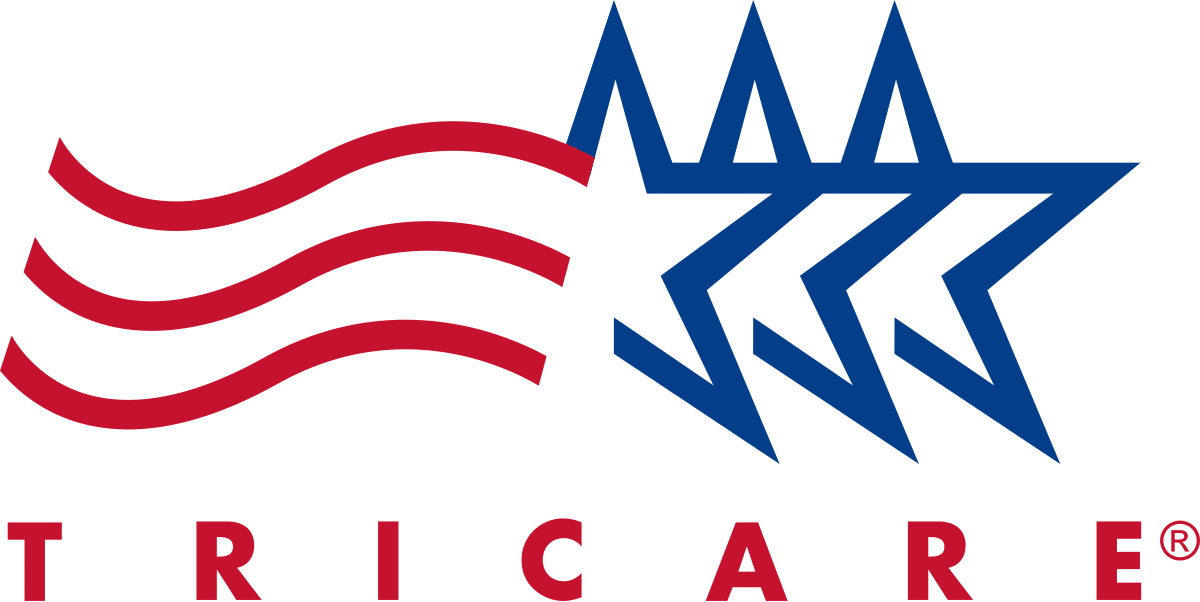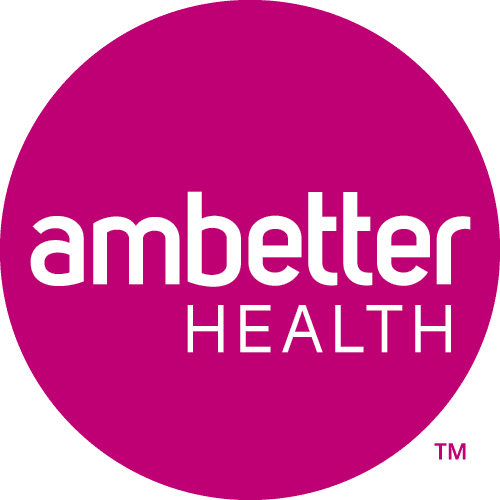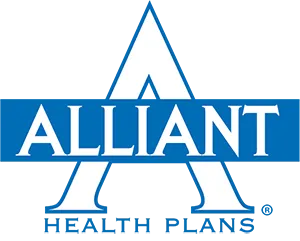Alcohol Addiction Treatment Center in Rome, GA
Alcohol Addiction Treatment Center in Rome, GA

Rome’s response to substance abuse challenges is evident in its infrastructure. The presence of multiple rehabilitation healthcare centers and treatment facilities in the area indicates that alcohol addiction is a significant community concern requiring substantial resources and attention.
The community’s response to alcohol addiction challenges is robust, with various treatment options and support services available to residents. However, like many similar-sized cities in Georgia, Rome continues to work on addressing substance use disorder issues as part of its broader public health and community wellness efforts.
For individuals seeking help at an alcohol addiction treatment center in Rome, GA, Fairland Recovery Center offers both immediate and long-term assistance for recovery.
Breaking the Cycle of Dependence at Fairland Recovery Center
Rome’s response to substance abuse challenges is evident in its infrastructure. The presence of multiple rehabilitation healthcare centers and treatment facilities in the area indicates that alcohol addiction is a significant community concern requiring substantial resources and attention.
The community’s response to alcohol addiction challenges is robust, with various treatment options and support services available to residents. However, like many similar-sized cities in Georgia, Rome continues to work on addressing substance use disorder issues as part of its broader public health and community wellness efforts.
For individuals seeking help at an alcohol addiction treatment center in Rome, GA, Fairland Recovery Center offers both immediate and long-term assistance for recovery.
Addressing Alcohol Addiction in Rome, Georgia
Alcohol addiction is a severe health issue that affects millions of people worldwide. It’s a complex condition that can impact a person’s life, relationships, and overall well-being.
Alcohol use disorder (AUD) is a medical condition marked by an inability to control alcohol use despite negative consequences.
People with alcohol addiction, also known as alcoholism, may find it hard to stop drinking even when they want to. This can lead to problems at work, at home, and in social situations. This condition, without treatment, can cause changes in the brain and body over time that may become permanent.
Recovery from alcohol addiction is possible with the right help and support. Fairland Recovery Center aims to reach people who are serious, focused, and willing to be held accountable. We understand that life can be challenging, and it is made even more complicated when dealing with alcohol addiction, but our staff has the drive and desire to help you overcome that obstacle so that life-long recovery is achievable.
We want our clients to deal with everyday challenges, like fixing a nail in your tire or deciding if a particular job is right for you. When alcohol addiction is removed from the list of “hard” that come with life, those everyday challenges become a lot easier to deal with.
Our programs help clients develop a sense of self, identity, focus, and purpose. Through this, we help each individual learn how to navigate life’s journey and not have to always resort to alcohol as an escape.
Understanding Alcohol Addiction
Alcohol addiction, medically known as Alcohol Use Disorder, is a complex condition that affects millions of people worldwide. It involves a range of symptoms, progresses through distinct stages, and can be influenced by various risk factors, including genetics.
As a chronic brain disorder, it is marked by an impaired ability to stop or control alcohol use despite negative consequences.
AUD can be mild, moderate, or severe, depending on the person and associated symptoms. This disorder often includes stages that people refer to as alcohol abuse, alcohol dependence, and alcoholism.
While this disorder affects a person’s thoughts, feelings, and behavior, it can also severely impact work, relationships, and overall health.
Symptoms of Alcohol Use Disorder
Symptoms of AUD can vary but often include:
- Drinking more or longer than intended
- Trying to cut down but being unable to
- Spending a lot of time drinking or recovering from drinking
- Craving alcohol
- Failing to meet responsibilities due to drinking
- Continuing to drink despite it causing problems
Physical symptoms may also occur:
- Needing more alcohol to get the same effect (tolerance)
- Experiencing withdrawal symptoms when not drinking
- Drinking to avoid withdrawal symptoms
These symptoms can range from mild to severe, depending on the individual and stage of the disorder. But there is hope. Dealing with these symptoms alone can seem daunting, but our team at Fairland works to develop treatment plans and programs specifically designed to treat those symptoms quickly and safely.
Stages of Alcohol Addiction
Alcohol addiction typically progresses through several stages, and understanding where you’re at is key to the recovery process.
- Early Stage: Increased tolerance and drinking more often
- Middle Stage: Loss of control over drinking, physical dependence begins
- Late Stage: Severe physical and mental health effects because life revolves around alcohol
Each stage has its challenges and risks. As the addiction progresses, it becomes harder to quit without help. Early intervention and treatment services through Fairland Recovery Center can prevent the progression to later, more severe stages.
Risk Factors and Genetics
Because alcohol use and drinking are so normalized in today’s world, it can be challenging to determine whether or not you or someone you love is suffering from alcohol addiction. Some factors can increase the risk of developing AUD. Knowing these risk factors can help identify if AUD is a concern.
Some of these factors include:
- Starting to drink at an early age
- Mental health disorders like depression or anxiety
- Trauma or stress
- Social and cultural factors
- Family history of alcohol problems
Genetics also plays a significant role in alcohol addiction. Studies show that genes account for about half the risk for AUD. If a parent or someone in your family has struggled with alcohol abuse, it is critical to be vigilant when alcohol is involved, even if you feel that you could never become addicted.
Having these risk factors doesn’t guarantee someone will develop AUD, and people without these factors can still develop the disorder. However, understanding that these risk factors exist can help in prevention, early intervention, and substance abuse treatment efforts.
At Fairland Recovery Center, our teams work with each client to determine the root cause of the alcohol abuse so that our programs address the entire person rather than simply managing symptoms.
Health Consequences of Alcohol Addiction
Alcohol addiction can lead to severe health problems, with those problems increasing in severity as the duration of the addiction rises. These issues affect the body and mind, ranging from short-term effects to long-lasting damage. It is also essential to keep in mind that alcohol addiction can affect those not even participating in drinking. Unborn babies can face detrimental risks when exposed to alcohol during pregnancy.
Short-Term Effects
Drinking too much alcohol can cause immediate health issues. People may experience nausea, vomiting, and headaches. Alcohol also affects judgment and coordination, leading to accidents or injuries.
Blackouts are a severe short-term effect. During a blackout, a person can’t remember what happened while drinking. This can be scary and dangerous, and it often leads to consequences associated with behaviors that one wouldn’t otherwise have when sober.
Alcohol poisoning is another risk. Signs include:
- Slow or irregular breathing
- Low body temperature
- Pale or blue-tinged skin
- Seizures
If you or a loved one shows these signs, immediate medical attention is necessary, as alcohol poisoning can lead to severe health consequences and death.
Long-Term Complications
As alcohol addiction spans months and years, heavy drinking can damage many parts of the body. The liver often suffers the most, developing fatty liver disease, hepatitis, or cirrhosis.
Other organs at risk include:
- Heart: High blood pressure, heart disease
- Pancreas: Inflammation, diabetes
- Stomach: Ulcers, acid reflux
- Brain: Memory loss, reduced brain size
Heavy drinkers may also face a higher risk of certain cancers. These include liver, breast, and colon cancer. Along with this, alcohol weakens the immune system, making it harder for the body to fight off other illnesses.
Fetal Alcohol Spectrum Disorders (FASDs)
Drinking during pregnancy can harm the unborn baby. It can lead to Fetal Alcohol Spectrum Disorders (FASDs), which create lifelong complications for that baby. FASDs can cause:
- Growth problems
- Brain damage
- Learning difficulties
- Behavior issues
There’s no safe amount of alcohol during pregnancy. The best choice is not to drink at all when pregnant or trying to get pregnant. And what’s worse, FASDs last a lifetime. They can affect a person’s ability to learn, work, and live independently.
Alcohol and Mental Health
Like many substance use disorders, alcoholism often goes hand in hand with mental health issues. Depression and anxiety are common among people who struggle with alcohol addiction. In these cases, alcohol may be used to self-medicate against symptoms that occur with anxiety and depression.
Unfortunately, drinking often makes those mental health conditions worse. At first, alcohol might help alleviate stress or sadness. However, over time, it can strengthen these feelings, leading to worsening symptoms and increased problems associated with those conditions. This can lead to a cycle that’s hard to break.
Conversely, a person who does not struggle with mental health but begins drinking in excess can find themselves developing conditions because of their alcoholism. Withdrawal from alcohol can cause an increase in anxiety and depression, leading the person to seek out more alcohol. Again, this is another toxic cycle that can be incredibly difficult to overcome.
Getting help for both alcohol use and mental health is key to recovery. Here at Fairland Recovery Center, we prioritize dual diagnosis treatment. Our clinicians work with each client to determine what they struggle with, whether that be just alcohol use or other co-occurring mental health issues. Then, we simultaneously address all those conditions and symptoms, leading to longer-term recovery.
Alcohol Withdrawal and Detoxification
One of the reasons stopping alcohol use after heavy drinking can be so tricky is because it often leads to withdrawal symptoms. Though these symptoms can be mild to severe, they can also lead to death. Proper medical care is key for a safe detox process.
Withdrawal Symptoms
Alcohol withdrawal symptoms can start within hours or days after quitting. The timeline of withdrawal varies from person to person. For some, symptoms peak at 24-72 hours. Others may have issues for weeks. These symptoms may include:
- Anxiety and irritability
- Shaking and sweating
- Nausea and vomiting
- Headaches
- Insomnia
More serious symptoms can occur:
- Hallucinations
- Seizures
- Delirium tremens (DTs)
Though none of the alcohol withdrawal symptoms are easy to deal with, DTs are the most severe because they can be life-threatening. Signs include confusion, fever, and rapid heartbeat. If you or a loved one experiences these symptoms, it is critical to seek immediate medical attention.
Treatment and Recovery Options
Our team at Fairland Recovery Center has a deep desire to help people. When somebody leaves our facility, we do not want them to return unless they’re coming to share their story with others in need of help. We are not looking for repeat customers.
Because everyone who comes to us is different, we aim to address them individually by developing a program specific to their needs. No two clients should ever have the same schedule or program. Treating alcohol addiction involves several approaches.
Evidence-Based Treatments
Evidence-based treatments aim to help people stop drinking and stay sober. However, they also work to improve overall health and quality of life, leaving our clients with skills and coping mechanisms to address all of life’s stressors.
Our programs incorporate evidence-based treatments because they are proven to work through research. Clients will participate in a variety of behavioral therapies, both individually and in groups. Depending on the person, medication may also be offered.
Medications Used in Treatment
Three main medications may be used in combination with therapy to treat alcohol addiction:
- Naltrexone: Reduces cravings and blocks the good feelings from alcohol
- Acamprosate: Helps the brain work normally after quitting alcohol
- Disulfiram: Causes unpleasant effects if someone drinks alcohol
Though these medications are not a cure-all, they can provide some accountability and relief throughout recovery.
Behavioral Therapies and Counseling
The main component of alcohol addiction treatment through Fairland Recovery Center will heavily center on a variety of behavioral therapies. These therapies, such as Cognitive Behavioral Therapy (CBT), Dialectical Behavioral Therapy (DBT), Motivational Enhancement Therapy, and Family Therapy, help people change their drinking habits. The goal of most of these therapies is to teach new ways to cope with stress and triggers.
We provide access to both group and individual therapies, allowing clients privacy and connection with others in similar situations. We’ve found that bringing people together through community can provide comfort and accountability.
Our Treatment Programs
As an outpatient treatment facility, we offer a few options to our clients depending on their needs and schedule. The goal is to give clients the freedom to live at home while receiving the highest-quality care. Many people who suffer from addiction do not have the ability to take time off of work, so outpatient care can also be the best option for busy schedules.
Partial Hospitalization vs. Intensive Outpatient Treatment
Our intensive outpatient programs provide clients regular weekly individual and group therapy options. This typically suits those with milder addiction or strong support at home because clients are required to participate in fewer hours than more intensive approaches. This schedule usually involves 3-4 hours a day for approximately 3-5 days per week.
A more intensive option that Fairland Recovery Center offers is the partial hospitalization program (PHP). This schedule is a structured program for addiction and substance abuse that bridges the gap between inpatient and outpatient care. Patients attend treatment daily (typically 4-6 hours, 5-7 days per week) while returning home each evening.
PHP is better suited for individuals stepping down from inpatient care, for people with less supportive home lives, or clients with more severe conditions (typically dual diagnosis).
Sober Living
Though Fairland Recovery Center does not provide in-house residential services, we have connections with the area’s best sober living and residential facilities. Again, our goal is not to have repeat customers, and if our outpatient services are not the best option, we will refer our clients to a more intensive rehab facility that can meet their needs. Ideally, we connect our clients with sober living communities or residential care, and then when outpatient services make sense, they come to us.
Sober living homes are residential facilities that provide a structured, substance-free environment for people recovering from addiction. These homes are transitional between intensive treatment programs and independent living. For this level of care, residents must follow house rules, including sobriety and participating in recovery meetings.
Maintaining Sobriety and Preventing Relapse
Staying sober requires ongoing effort and strategies for long-term recovery. Key factors include changing habits, managing triggers, building support systems, and viewing recovery as a journey, not a quick fix.
Lifestyle Changes and Coping Skills
Healthy living is crucial for long-term sobriety. This includes:
- Regular exercise
- Balanced diet
- Adequate sleep
- Stress management techniques
Developing new coping skills through individual and group therapies helps you handle stress without substance use. We provide holistic care and counseling to help clients create healthier skills like meditation, deep breathing, journaling, and engaging in new hobbies.
Learning to deal with negative emotions healthily is key, and we ensure our clients develop them before exiting our program.
Identifying and Managing Triggers
Because recovery is a lifelong journey, our clients must identify their triggers, understand the root cause of their alcohol addiction, and find ways to maintain recovery when those triggers come up.
Common triggers might include certain people or places, negative emotions like stress or anger, or even positive events like celebrations where alcohol will be present. We often urge clients to remove people or places that cause negative behaviors. We also encourage them to plan for interactions where alcohol might be present.
Creating a relapse prevention plan before exiting one of our programs helps manage these triggers. Steps that we walk our clients through include:
- Identify personal triggers
- Develop strategies to avoid or cope with triggers
- Practice these strategies regularly
Having a plan reduces the risk of impulsive decisions when faced with temptation.
The Role of Family and Relationships
We are also big believers that having a strong support system is vital for maintaining sobriety. Healthy relationships provide emotional support, accountability, and encouragement through tough times.
Through family therapy and relapse prevention planning, Fairland Recovery Center helps the family members of our clients learn about addiction to better support their loved ones. We encourage involvement in therapy sessions and support groups specifically for families of people with a substance use disorder. We also work with families on things like creating a substance-free home environment.
Another aspect of life we work with our clients on is friendships. Friendships can be a fantastic aspect of recovery, but it can also be tough to leave old friendships behind that no longer serve our clients. Building new friendships with sober individuals can reinforce recovery efforts and also hold our clients accountable for maintaining sobriety.
Relapse as Part of the Recovery Process
A common misconception is that relapse means you’ve failed. We don’t see it that way and encourage our clients not to view it as a failure. It’s often part of the recovery journey, and our clinicians at Fairland Recovery are well-equipped to guide clients through this if it happens.
If a relapse does occur:
- Seek help immediately
- Learn from the experience
- Adjust the recovery plan as needed
Tracking progress, whether before or after a relapse, can help prevent further relapses. We encourage our clients to keep a sobriety journal, celebrate milestones, or use a recovery app to track progress. Not only does this help with the entire recovery process, but it is also something that our clients can look back on as they watch themselves grow over time.
End the Flight or Fight
Our philosophy at Fairland Recovery Center is to foster lasting recovery through personal growth and accountability rather than simply managing symptoms. With a solid commitment to aftercare, clients at Fairland Recovery Center receive ongoing support through case management and check-ins post-treatment.
Fairland maintains a 60% sobriety maintenance rate among graduates, indicating the program’s effectiveness. Make today the day you drop the baggage of alcohol addiction. When people are in an active addiction, a lot of times, they become like chameleons, and they learn to blend into their environment to survive. Find out how to stand up and stand out.
Call us at 770-797-7652 to get started with your treatment provider.
Fairland Recovery Center Treatments
Find Help Now
We accept most major insurances











